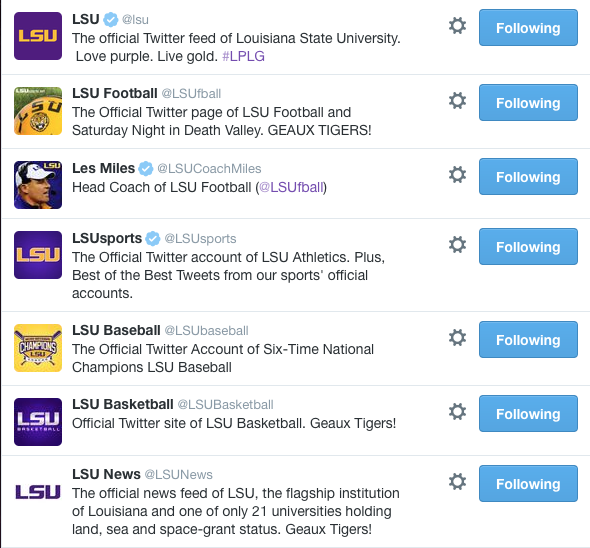For most Twitter users, followers tend to be those who echo their opinions.
Twitter is creating an “ideological echo chamber,” limiting the varying political opinions other users can view, according to a study by Yosh Halberstam and Brian Knight.
Halberstam and Knight used a model to show how groups, conservatives and liberals, are disproportionately exposed to like-minded information.
However, this seclusion radiates beyond Twitter to other social media like Facebook and in real life, said Steve Buttry, Lamar visiting scholar at the Manship School of Mass Communication.
“I think it would be an overstatement to say it’s an echo chamber, and we never hear points of view we don’t agree with, but if the echo chamber means we mostly hear points we agree with, I think it’s true on Twitter, I think it’s true on Facebook, and I think it’s true in life,” Buttry said.
He said it would be rare for someone to be completely free of any opposing political views on Twitter. However, it is common for Twitter users to follow liberal or conservative people based on their viewpoints.
In the days before digital media, Buttry said primary sources of political information like newspapers were not ideological, but social media allows people to ostracize themselves and receive only ideologically influenced news.
Buttry said Twitter as an “ideological echo chamber” is limiting.
Communication disorders senior Danea Spillman agreed Twitter limits people’s ability to see other points of view.
“It might be limiting, but I think you can still get information from outside sources besides your social media page,” Spillman said.
Twitter users should be following some mainstream, non-ideological news sources, Buttry said, to counter balance the exclusiveness of the Twitter world.
However, Spillman said she chooses to follow news sources who agree with her political ideology.
Buttry said he is hopeful some people come across others with different points of view through social interactions.
“I think and hope young people, as a part of their education learning about the world, are seeking out more points of view and are shunning the echo chamber and broadening the points of view they hear and share more than the older generations,” Buttry said.
Buttry realizes generational statements will not apply to every person. There are young people who seclude themselves on social media thereby surrounding themselves with like-minded people.
Buttry said the best method to break the “echo chamber” is to engage in discussion with friends with differing viewpoints.
“We all have some friends that just drive us nuts because they’re not seeing the same truth that we are,” Buttry said. “And I think most of us have those friends on social media, and we either roll our eyes or hide them or we jump in and poke the hornet’s nest when they post something we don’t agree with.”
Communication studies sophomore Victoria Bourgeois said she ignores her friends’ political tweets because politics can be too controversial.
It’s not good for society to have individuals live in an “echo chamber,” Buttry said. Yet, it’s natural to associate with people with similar interests.
Buttry said he hopes Twitter users bond over similar interests such as sports who have differing political interests, sparking future debate.
Study shows Twitter users follow those who reinforce their opinions
November 24, 2014

More to Discover









